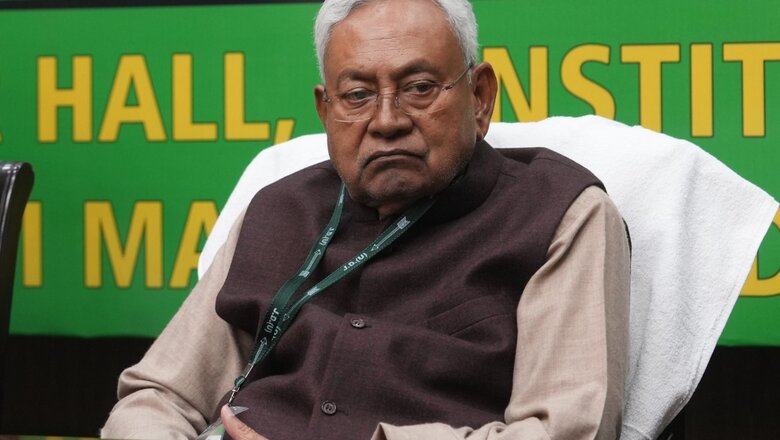
views
An old saying goes about Indian voters – “In India, voters don’t cast their vote, they vote their caste.”
Politicians and political parties, ever since independence, have been expediently using caste to the hilt of their own political advantage. Remember, in October last year, the Bihar government — led by Chief Minister Nitish Kumar — released a caste-based survey? The survey concluded that Other Backward Classes (OBCs) and Extremely Backward Classes (EBCs) constitute a whopping 63 per cent of Bihar’s total population.
It is pertinent to mention that historically, the caste census was introduced by the British colonial government in the year 1881. The decadal caste-wise enumeration of population continued until 1931 and the census was discontinued thereafter.
Independent India never restored the caste census as part of the regular census because such an exercise would perpetuate the caste system and strengthen caste divisions in the country. In fact, in 1980 when the Mandal Commission recommended reservations for socially and economically backward classes in the Central government jobs, it used the data of the 1931 caste census only.
Nitish Kumar, a product of Mandal politics, has plucked the dead issue of caste census from the dustbin of history and given it a context to satiate the agenda of caste politics. Not to forget that even the British government considered the exercise of caste census and its implications “divisive”. Taking a thread out Nitish Kumar’s move, the Congress had promised a similar caste-based census in the Hindi heartland states of Rajasthan, Madhya Pradesh and Chhattisgarh, where elections were held in November and December 2023. In the heat and dust of elections, senior Congress leader Rahul Gandhi made a strong pitch for caste census with his slogan – ‘Jitni abadi, utna haq’ (Rights proportionate to population).
Then sundry columnists joined the caste cauldron bandwagon by writing column after column predicting that caste calculus would factor in voters’ choice in the heartland states and that the caste dynamics would shape election verdict. In fact, when the Nitish Kumar government in Bihar released the caste census, this same ilk of agenda-driven columnists jumped the gun by arguing that such a “landmark move” has “threatened” Prime Minister Narendra Modi’s grip on “power” and “caste census has the potential to upend India’s politics”.
But their wild speculations were dashed to pieces as the BJP swept the Hindi heartland states of Madhya Pradesh, Rajasthan and Chhattisgarh. This is not to dispute that since long, the Hindi heartland states have been considered as the hotbed of caste politics. But in a clean break with the age-old politics, the issue of caste census failed to strike a chord with the voters in the heartland states.
In the Hindi heartland states, the Congress made a political experiment of dividing the Hindu votes by making the caste census a key poll issue. At the same time, the BJP subtly countered the Congress’ caste census ploy by focusing on the development of all, instead of a particular section. And that certainly worked to the BJP’s advantage as there was a massive consolidation of Hindu votes in favour of the saffron party.
If the recent state elections can be considered as an example, it can be concluded that Indian voters are moving out of the caste considerations as they are moved by Prime Minister Narendra Modi’s sheet anchor for governance – ‘Sabka Saath, Sabka Vikas’ (Together with all, development for all). PM Modi has his fingers on the pulse of the nation by emphasising that he believes in only four castes — women, youth, farmers and the poor.
However, undeterred by the massive drubbing in the Hindi heartland states, the Congress – on the other hand – maintains that the Assembly elections results are not “a repudiation of the caste-census issue”. Sources in the Congress told this writer that the “promise of a national caste census” would be one of the key poll planks of the Grand Old Party and the INDI alliance in the 2024 general elections. In a bid to micro-divide the Hindu society, the Congress-led INDI bloc wishes to make the 2024 elections an agada (forward) versus pichada (backward) contest to counter PM Modi’s inclusive development agenda.
Come 2024 elections, the voters will choose between Prime Minister Narendra Modi’s inclusive agenda and the Congress’ agenda to divide the Hindu society on caste lines.
The writer is a multimedia journalist having 17 years of experience, with 10 years in senior editorial positions. Views expressed in the above piece are personal and solely that of the author. They do not necessarily reflect News18’s views.



















Comments
0 comment